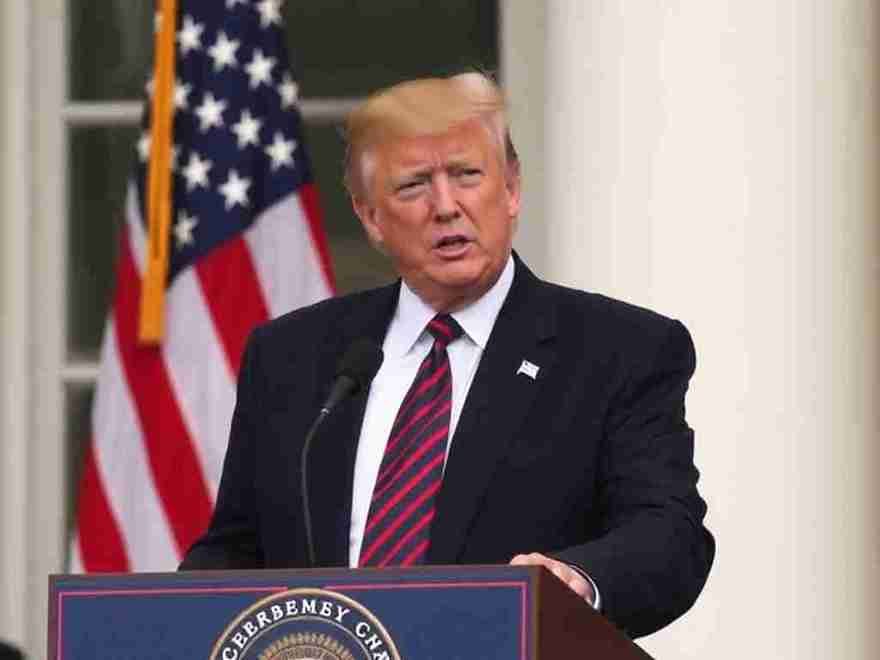Former President Donald Trump has made headlines for his controversial remarks about various communities, including Arab Americans. His statements have sparked outrage and concern among many, yet a segment of Arab American voters continues to express support for him. This article delves into the complexities of this relationship, exploring why some Arab Americans align with Trump despite his criticisms and the broader implications for the community.

The Controversial Remarks
Trump’s comments about Arab Americans have often been perceived as derogatory and divisive. From his early campaign rhetoric to his presidency, he has made statements that many view as perpetuating stereotypes and fostering discrimination. These remarks have understandably alienated a significant portion of the Arab American community, leading to widespread condemnation.
- Stereotyping and Generalizations: Trump’s tendency to generalize about Arab Americans has raised concerns about the perpetuation of harmful stereotypes. Such comments can contribute to a culture of fear and misunderstanding, further marginalizing an already vulnerable community.
- Impact on Community Relations: His rhetoric has strained relationships between Arab Americans and other communities, leading to increased tensions and divisions. Many feel that his comments undermine the contributions of Arab Americans to society.
The Complex Support for Trump
Despite the backlash against his remarks, some Arab Americans continue to support Trump. Understanding this phenomenon requires a closer look at the factors influencing their loyalty:
- Economic Concerns: For some Arab Americans, economic issues take precedence over social concerns. Many believe that Trump’s policies, particularly those related to tax cuts and deregulation, could benefit their businesses and financial well-being. This pragmatic approach can lead to support despite disagreements on social issues.
- Political Identity: Some Arab Americans identify more with the Republican Party’s values, particularly regarding national security and foreign policy. They may feel that Trump’s tough stance on terrorism aligns with their desire for safety and stability, leading them to overlook his controversial remarks.
- Disillusionment with the Democratic Party: A segment of Arab Americans may feel disillusioned with the Democratic Party, believing it has not adequately addressed their concerns. This dissatisfaction can drive them toward Trump, viewing him as a viable alternative despite his inflammatory rhetoric.
- Cultural and Religious Factors: Some Arab Americans may prioritize cultural and religious values that align more closely with Trump’s policies, particularly on issues like immigration and family values. This alignment can create a sense of loyalty that overrides concerns about his comments.
The Broader Implications
The support for Trump among some Arab Americans highlights the complexities of identity and political affiliation within the community. It raises important questions about how individuals prioritize their values and concerns when making political decisions.
- Diverse Perspectives: The Arab American community is not monolithic; it encompasses a wide range of perspectives and experiences. Understanding the diversity of opinions within the community is crucial for fostering dialogue and addressing the unique challenges they face.
- The Role of Media: Media portrayal of Arab Americans can influence public perception and political alignment. It is essential to challenge stereotypes and promote a more nuanced understanding of the community to bridge divides and foster unity.
- Future Political Engagement: As the political landscape continues to evolve, the engagement of Arab Americans in the electoral process will be critical. Encouraging open dialogue and addressing the concerns of all community members can lead to more informed and representative political participation.
Conclusion
The relationship between Trump and Arab Americans is complex and multifaceted. While his remarks have alienated many, some continue to support him for various reasons, including economic concerns, political identity, and cultural values. Understanding this dynamic is essential for fostering dialogue and addressing the unique challenges faced by the Arab American community. As we move forward, it is crucial to promote inclusivity and understanding, ensuring that all voices are heard in the political arena.
Call to Action
Engage with your community to foster understanding and dialogue about the diverse perspectives within the Arab American community. Share your thoughts and experiences to promote a more inclusive political landscape.
